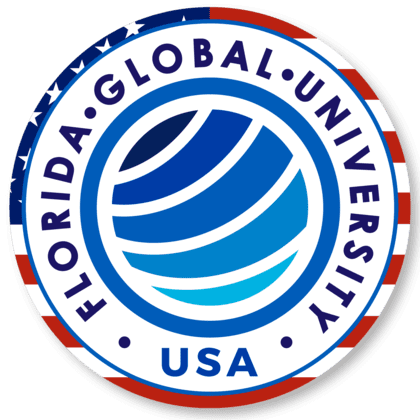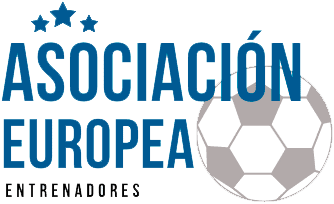You will have the opportunity to perform, voluntarily, your internships in different clubs in Barcelona.
Enroll
Course endorsed by:

In collaboration with:

Contenido
Presentación
Master all the concepts and practices of physical preparation and injury prevention in the world of football with the EXPERT IN INJURY PREVENTION, which is based on game models to clarify concepts, guide methodologies and apply them to daily work.
The brilliantly structured syllabus includes practical examples so you can instantly apply concepts and techniques. You will learn to optimize the team's efficiency from professionals in the sector, who will prepare you to know and apply the latest and most innovative strategies and exercises for the physical preparation of players.
The content stands out for its unique focus: competition and effective training. The course focuses on the latest trends in the field of physical preparation, including in grassroots football, leaving aside reductionist and analytical theories to focus on systemic theories and global training.
Regarding prevention work. The syllabus includes everything from the starting concepts to real cases, and covers the actions indicated to prevent the appearance of injuries in the footballer (prevention), as well as the treatment of injuries (subsequent action) to ensure that the squad is ready for the competition. .
Does physical preparation itself exist? What is contextualized physical preparation? This expert course will allow you to answer these questions and others such as: What is the reality of training in today's football? Is separate and decontextualized training of the physical, technical, tactical and psychological components more effective? How are strength, endurance and speed defined in soccer? What practices can I suggest to my players to prevent certain injuries? What strategies should I follow to recover an injured player?
Índice
Module 1- Introduction. Philosophy of training, competition, the human being, etc.
- 1.1. Evolution of training methodologies over the last decades.
- 1.2. New trends in football training.
- 1.3. Tactical Periodization. Brief ideas.
- 1.4. Systemic methodology of "New Model" training.
- 1.5. What is fitness? New concept of fitness.
- 1.6. Is there physical preparation?
Module 2- Description of the environment
- 2.1. General description
- to. Description of the club.
- b. Historical.
- c. Club structure.
- d. Facilities.
- and. Material available.
- F. Cooperation possibilities for different analyses.
- g. Technical team.
- h. Template (Sports CV of the players).
- Yo. Individual performance profile of players (explanation of Seirul.lo structures).
- j. Group performance profile of players.
- k. Collective performance profile of the players.
- 2.2. Formulation of objectives. SWOT-CAME technique.
Module 3- Resistance training in team sports
- 3.1. Introduction.
- 3.2. Current situation of resistance training.
- 3.3. Proposal for resistance training in collective sports.
- to. General aerobic endurance training.
- Aerobic efficiency training.
- Aerobic capacity training.
- Power training.
- Resistance recovery training.
- Summary of general resistance training.
- b. Specific resistance training.
- Resistance training in technique.
- Resistance training in the technique: medium intensity.
- Resistance training in technique: maximum intensity
- Resistance training in the technique: supra maximum intensity.
- c. Resistance training as decision making.
- d. Game resistance training.
- to. General aerobic endurance training.
Module 4- Strength training in team sports.
- 4.1. Concept of strength.
- 4.2. "Everything is strength." Strength as a basic physical ability.
- 4.3. Strength training to improve performance.
Module 5- Speed training in team sports.
- 5.1. Speed in football.
- 5.2. New way of understanding speed. Optimal speed?
Module 6- Planning and Periodization
- 6.1. Competition calendar.
- 6.2. Planning, periodization, sports training, etc.
- 6.3. Load.
- 6.4. General adaptation syndrome.
- 6.5. Control of training and load.
- 6.6. Planning model - periodization.
- 6.7. The preseason.
- 6.8. The season.
- 6.9. Fatigue.
- 6.10. Recovery methods.
- 6.11. Poor training management.
- to. Overtraining and its types.
- b. Tapering and its applicability in football teams.
Module 7- The invisible training
- 7.1. The nutrition.
- 7.2. Hydration.
- 7.3. The hours of sleep.
Module 8- Football
- 8.1. General characteristics.
- 8.2. Game dynamics.
Module 9- The weekly structure
- 9.1. Introduction.
- 9.2. The game model in the training process.
- 9.3. The morph cycle pattern or design of weekly training cycles.
- 9.4. Microstructures: Seirul.lo.
Module 10- The training session
- 10.1. The organization.
- 10.2. The role of the physical trainer or "football player trainer".
- 10.3. Training time.
- 10.4. The warm-up.
- 10.5. The main part.
- 10.6. The return to calm.
- 10.7. Review of the session.
- 10.8. Strategies to follow on the training day.
Module 11- The training task
Module 12- The competition
- 12.1. Strategies to follow on game day.
- to. Basic ideas about pre-match nutrition.
- b. Pre-match warm-up.
Module 13- Sports injuries in soccer.
- 13.1. Conceptual bases.
- 13.2. Terminological foundations.
- 13.3. Typologies.
- 13.4. Pathophysiology of injuries.
- 13.5. Healing and tissue regeneration.
- 13.6. The process of functional-sports reeducation.
Module 14- Medical-therapeutic treatment.
- 14.1. Therapeutic modalities.
- 14.2. Diagnosis of the injury.
- 14.3. Initial care.
- 14.4. Therapeutic proposals.
Module 15- Recovery process. Therapeutic modalities.
Module 16- Therapeutic allies and sports injury.
- 16.1. Pharmacological agents.
- 16.2. Feeding.
- 16.3. Erogenous.
- 16.4. Homeopathy.
Module 17- Final evaluation
Metodología
This training program will be carried out taking into account the following points:
Virtual classroom: The courses are taught entirely online. They are carried out through our virtual campus which is accessed from the cover of our website, www.futbollab.com, through the button Access to the Virtual Classroom. From there you can access syllabi, explanatory presentations, demonstration videos, teacher analysis, and tasks that the teachers send and correct.
Tutors: The teachers offer continuous tutoring, establishing telephone and/or videoconference tutoring, explaining any doubts that may arise. They guide your training evolution throughout the course, depending on your profile and level of dedication or study schedule. As we have indicated, the syllabus, videos, articles, interviews with experts are part of your evolution in the course, so you will do periodic exercises that the teacher reviews to give you the clearest idea of the topic being worked on.
Assessment:At the end of the course you will carry out a final project that will encompass all the areas studied and that will always involve the development of a real case, since at FutbolLab we want our courses to be directed at all times to the real training situation that the technicians find themselves in. their teams.
Registration process: Step by step video
To register you only have to do click In the Enroll tab, from there you will be asked to enter your personal data necessary for the academic record and in the final part of the process you will be able to choose the payment format for this program.
Remind you that in this course you can go at your own pace and do it according to your availability, as long as you do not exceed the maximum time to do it, which in the case of master's degrees is 2 and a half years, 18 months for Expert or Technical courses and 7 months for courses that are not in these categories.
It is plenty of time to do it, if you still need more time, you must ask the admissions department for authorization to extend a time. If you get a positive response, the new agreed time will be automatically extended.
You can contact us via email at attention@futbollab.com, by telephone at +34 93438 6000.
If you prefer direct communication via WhatsApp, Click here
Créditos
This Expert Course is issued by the Florida Global University and has 36 ECTS Credits (900 teaching hours).
Destinatarios
This university expert can be taken by:
- Graduates/Graduates in Physical Activity and Sports Sciences.
- Qualified trainers.
- Technicians with experience in football.
Accreditation of these requirements will be validated at the time of registration by the FUTBOLLAB admissions department.
Requisitos
Graduates/Graduates in Physical Activity and Sports Sciences, qualified coaches and technicians with experience in football.
Professionals with recognized and accredited work and/or professional experience, provided that said experience is related to the competencies inherent to the Master's degree, people related to football who want to specialize in this area.
Information
Do you have any doubt? You can check our section frequent questions, download the Course program or fill out the following form and we will contact you.

